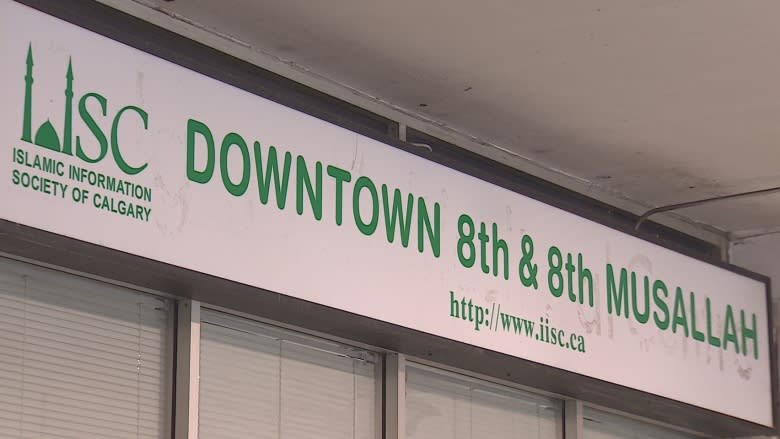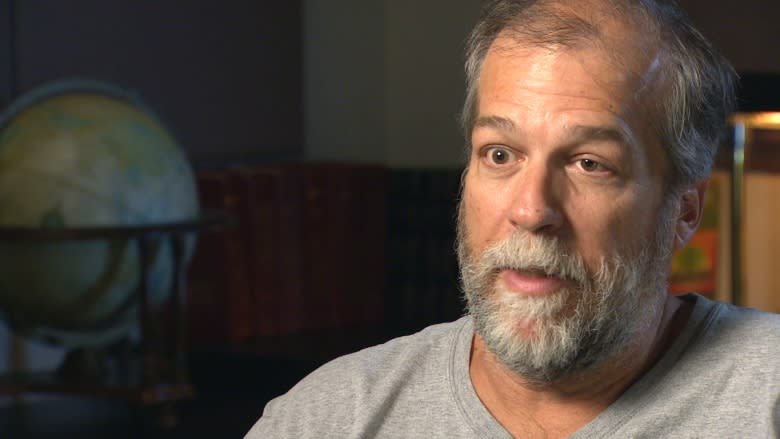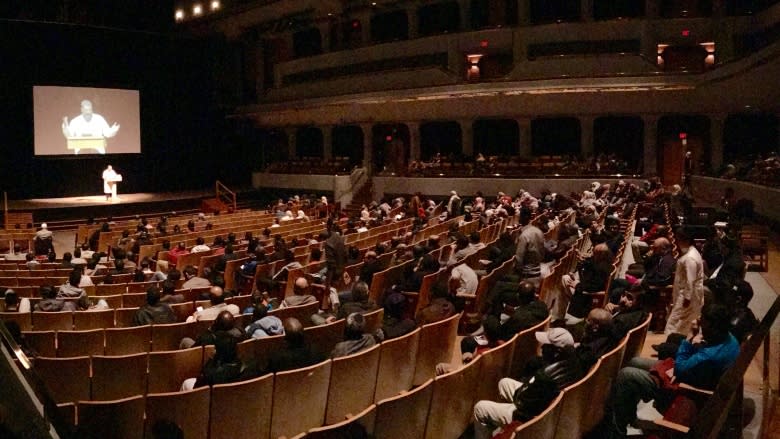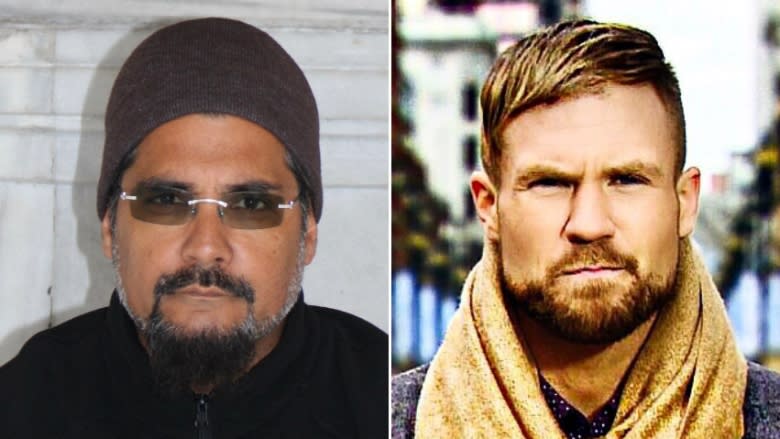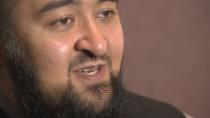Calgary mosque tainted by 'dark element' of radicalization to close doors this week
A Calgary mosque that became a focus in terrorism investigations after several men who prayed there left to fight abroad is closing its doors Friday — a move that leaves its imam and community with a sense of relief.
Nearly three years ago, CBC News revealed the identities of Salman Ashrafi, Damian Clairmont and others who left Canada to fight with jihadi groups in Syria and Iraq. All had attended prayers at the 8th and 8th mosque in downtown Calgary — whose name originates in its location at 835 8th Ave. SW. Many were killed abroad.
The imam, Navaid Aziz, told CBC News the community plans to begin anew, although it hasn't finalized its new mosque location. There's a sense of relief about finally leaving a place that became synonymous with radicalization, Aziz says.
"It was a place I taught and gave lectures. I performed people's marriages. We celebrated people's births in this mosque," said Aziz.
"Then there was this dark element that lingered over it, that overshadowed and overpowered all of these amazing experiences over something I had no control over, something I had nothing to do with.
"Once that negative incident happened, that was so powerful, that outshined all of the positivity. That's how I viewed 8th and 8th."
Aziz recalls a time he wanted to lock himself in a room and not come out. But now he's stepping out of the mosque and into the community.
In mid-March, Aziz organized the Stronger Together conference in Calgary. Hundreds of Muslims attended to address challenges facing the community.
'I could never infiltrate that circle'
It's a far cry from April 2012, when Aziz arrived from Montreal. There was no handbook or training manual for what he was about to encounter.
In early 2014 Calgary began dominating headlines as Canada's jihadi hotspot.
Aziz felt the community wanted someone to take responsibility for the men radicalizing in a room connected to the mosque. So he did, even though he says it was impossible to know for sure what was going on.
"I saw them a couple of times, but I never saw anything first-hand that would arouse my suspicion. In front of me nothing ever happened," Aziz said.
"I could never infiltrate that circle," he said. "Eventually, I find out that they're gone."
'It was such a dark moment'
Clairmont, Ashrafi, Tamim Chowdhury, Ahmad Waseem and brothers Gregory and Collin Gordon — who converted to Islam and became known to members of Calgary's Muslim community as Abdul Malik and Khalid — left Canada months apart. They were all killed fighting under the banner of ISIS.
There have been no confirmed reports of the death of Farah Shirdon, another member of the 8th and 8th mosque. Shirdon, who was enrolled in the Southern Alberta Institute of Technology in Calgary until at least 2012, got worldwide notoriety when he appeared in an ISIS video released in 2014.
Before burning his Canadian passport, Shirdon, in full view of the camera lens, issues a threat to Canada, the U.S. and "all oppressors."
"We are coming and we will destroy you by the will of God," Shirdon says on the video.
He faces six criminal charges related to his alleged support of ISIS.
Aziz says he knew Shirdon better than the other men who ended up with ISIS.
"When you think of that moment of where he takes the Canadian passport, tears it up and throws it into the flames, for me that is such a scene out of a Hollywood movie. It was such a dark moment for me," said Aziz.
While intelligence officers and police were looking for the cause of this radicalization, Aziz says he too was once a target.
"I was interviewed regularly after that time," Aziz said. "I would have trouble getting back into the country, getting held two or three hours by CBSA [Canada Border Services Agency] saying my file was flagged.
"I understood where it was coming from but I didn't appreciate the lack of clarity."
Aziz says he wishes he could have had a conversation with officials.
Instead, Aziz says, he co-operated with authorities for months. Police finally came around and saw him as an asset, he says. He went from being an alleged radicalizer to becoming the Muslim chaplain for the Calgary Police Service.
"I said I would love to do it. I want to help people. I want to make the world a better place," says Aziz.
Aziz says the experience at the 8th and 8th mosque has taught him valuable lessons. Today he says he is able to identify signs of radicalization in an individual before it is too late.
Many Muslims were in denial — but that's changing: former CSIS analyst
A former Canadian Security Intelligence Service analyst says security agencies were looking for partners in the community to stem the flow of men joining ISIS — but many in the Muslim community were in a state of a denial that it was happening.
Phil Gurski, who was a strategic analyst with CSIS for more than 30 years, applauds the role Aziz has taken in the community.
"He's trying to work with the police, with the authorities to say 'OK, can we work with these people, can we get to these people before it's too late?'" Gurski said.
"That denial has largely left because they know it's happening. We are not trying to say it's systemic, and it's certainly not existential, but it is happening," said Gurski.
Aziz hailed as key ally to fight extremism
CBC News has spoken with Nader Khalil, an RCMP outreach co-ordinator, and Const. Kim MacDonald of the Calgary Police diversity resource team, who say Aziz has emerged as an important ally in the fight against extremism in Calgary.
Muslim parents come to him with their concerns. Security agencies, government officials and interfaith groups say they're leaning on Aziz to help reshape the perception of Muslims in Calgary.
Author bios:


